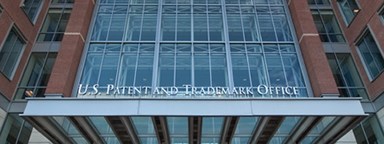-
AIPLA CLE Webinar: Post-Grant Strategies for Correcting and Challenging Patent Claims
March 4, 2020 12:30 PM to 2:00 PM | 1.5 CLE Credits
This webinar will provide a summary of post-grant procedures and describe when, why, and how each procedure is useful (or not) to patent owners and third-party challengers.
-
AIPLA CLE Webinar: Post-Grant Strategies for Correcting and Challenging Patent Claims
March 4, 2020 12:30 PM to 2:00 PM | 1.5 CLE Credits
This webinar will provide a summary of post-grant procedures and describe when, why, and how each procedure is useful (or not) to patent owners and third-party challengers.
-
AIPLA CLE Webinar: Post-Grant Strategies for Correcting and Challenging Patent Claims
March 4, 2020 12:30 PM to 2:00 PM | 1.5 CLE Credits
This webinar will provide a summary of post-grant procedures and describe when, why, and how each procedure is useful (or not) to patent owners and third-party challengers.
News
-
 AIPLA Issues Statement Following the Passing of Former Register of Copyrights Marybeth Peters
AIPLA Issues Statement Following the Passing of Former Register of Copyrights Marybeth Peters
September 30, 2022
ARLINGTON, VA. September 30, 2022 - The American Intellectual Property Law Association (AIPLA) released the following statement in response to the passing of former Register of Copyrights Marybeth Peters on September 29, 2022 -
.png?sfvrsn=143e8f56_1) AIPLA Files Brief in Support of Petition for Certiorari in Jack Daniel’s Properties Inc. v. VIP Products LLC
AIPLA Files Brief in Support of Petition for Certiorari in Jack Daniel’s Properties Inc. v. VIP Products LLC
September 21, 2022
Arlington, VA. September 16, 2022,- The American Intellectual Property Law Association (AIPLA) filed an amicus brief in support of the Petition for Certiorari currently pending before the Supreme Court in Jack Daniel’s Properties Inc. v. VIP Products LLC, No. 22-148. The decision below, decided by the Ninth Circuit, involved the unauthorized use of trademarks and trade dress owned by Jack Daniel’s in connection with a dog toy product that purportedly parodied the Jack Daniel’s brand. Jack Daniel’s claimed that the dog toys infringed its rights under the Lanham Act. However, the Ninth Circuit held that the First Amendment protects all “humorous” or parodic uses of others’ trademarks regardless of the nature of the underlying product, becoming the first court to apply such protections outside of Lanham Act disputes involving artistic works. -
 AIPLA Files Comments on Proposed Final Pretrial Conference Pilot and Order
AIPLA Files Comments on Proposed Final Pretrial Conference Pilot and Order
August 26, 2022
Arlington, VA. August 26, 2022 - The American Intellectual Property Law Association (AIPLA) filed comments to the United States Patent and Trademark Office’s Trademark Trial and Appeal Board (TTAB) on the proposed pilot program for instituting a Final Pretrial Conference (PFC) requirement in certain TTAB opposition and cancellation proceedings. Overall, AIPLA supports the pilot program to give the TTAB an opportunity to evaluate its potential effectiveness, recognizing the burden placed on TTAB Administrative Judges and staff when cases with large records are presented for decision. Therefore, AIPLA supports the TTAB in studying and evaluating ways to make these cases more efficient. -
 AIPLA Files Comments on China’s Draft Provisions Prohibiting Abuse of Intellectual Property Rights to Exclude or Restrict Competition
AIPLA Files Comments on China’s Draft Provisions Prohibiting Abuse of Intellectual Property Rights to Exclude or Restrict Competition
August 24, 2022
Arlington, VA. August 24, 2022 - The American Intellectual Property Law Association (AIPLA) filed comments on Draft Provisions Prohibiting Abuse of Intellectual Property Rights to Exclude or Restrict Competition issued by China’s State Administration for Market Regulation (Draft Provisions). The comments point out that AIPLA generally believes intellectual property rights (IPR) should not be enforced beyond their effective term limits, given the efficient market realities of portfolio licensing, but recommends the Draft Provisions explicitly permit parties to establish license agreements that license an entire portfolio of IPR, notwithstanding the fact that certain IPRs may expire or be found invalid during the term of an agreement. -
 AIPLA Files Brief In Support of Neither Party Regarding Order Setting Schedule for Director Review
AIPLA Files Brief In Support of Neither Party Regarding Order Setting Schedule for Director Review
August 5, 2022
On August 4, AIPLA filed an amicus brief in the two PTAB cases of OpenSky Industries, LLC, Patent Quality Assurance, LLC, and Intel Corporation v. VLSI Technology LLC, which USPTO Director Vidal has taken up to address what actions the USPTO Director should take when faced with assertions of an abuse of process or conduct that otherwise thwarts, as opposed to advances, the goals of the Office and/or the AIA. AIPLA’s brief argues that the review procedures implemented in these proceedings are adequate to address the rare instances of alleged abuse of process or alleged conduct contrary to the goals of the Office and/or the AIA.
